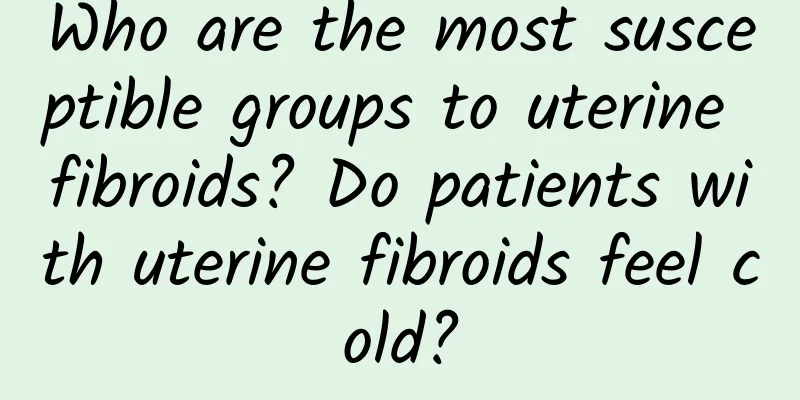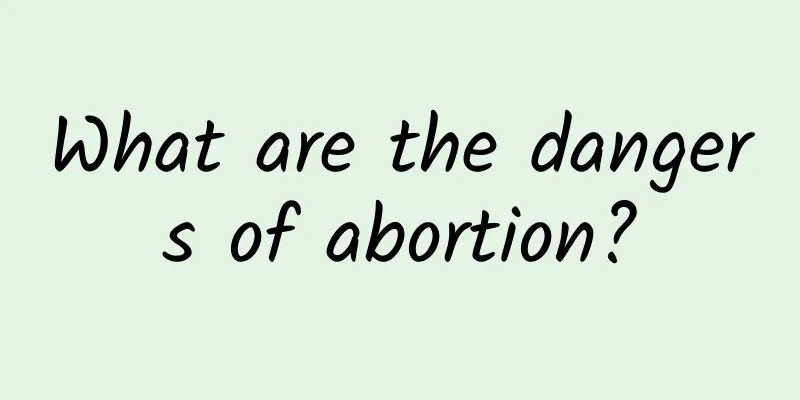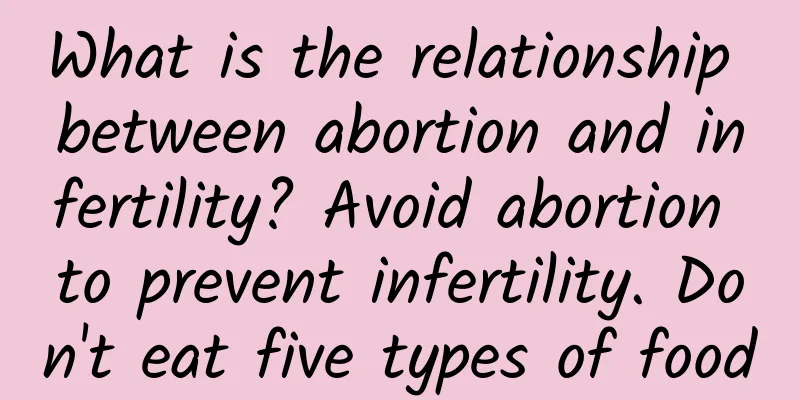Who are the most susceptible groups to uterine fibroids? Do patients with uterine fibroids feel cold?

|
What is uterine fibroid? Are patients with uterine fibroids afraid of cold? I believe these are questions that many women are concerned about. Uterine fibroids, also known as uterine leiomyoma, are the most common benign tumors of the female genitalia and are generally asymptomatic. A few clinical manifestations include vaginal bleeding, menorrhagia, lower abdominal masses, or difficulty urinating. Uterine fibroids can be divided into subserosal fibroids, intramural fibroids, submucosal fibroids or cervical fibroids, broad ligament fibroids, etc. At present, uterine fibroids are more common in women aged 30-45 with strong ovarian function. After the age of 50, most fibroids shrink on their own due to the obvious decline in ovarian function. The cause of uterine fibroids is still unclear, but it is mainly caused by high estrogen levels, followed by psychological, gynecological inflammation and genetic factors. If uterine fibroids are not treated in time, as the size of the fibroids increases, it often causes infection, inflammation and even infertility, and in severe cases it can cause malignant lesions. Therefore, the treatment of uterine fibroids is imminent and there is no chance of luck. At present, the treatment of uterine fibroids mainly includes surgical treatment and drug treatment. As for whether patients with uterine fibroids are afraid of the cold, from the perspective of traditional Chinese medicine, fear of the cold is a manifestation of yang deficiency. Uterine fibroids are mainly related to kidney deficiency (including kidney yang deficiency and kidney yin deficiency) and liver depression and qi stagnation. Therefore, if the patient has uterine fibroids caused by kidney yang deficiency, it is possible to be afraid of the cold. But if the patient has symptoms of fear of the cold, it is recommended to go to the hospital, find out the cause in time, receive treatment as soon as possible, and strive to recover as soon as possible. In addition, if the patient has long-term irregular menstruation after surgery, it is recommended to go to a regular hospital for examination to eliminate the possibility of organic lesions. |
<<: What are the causes of uterine fibroids? Can multiple miscarriages also cause uterine fibroids?
>>: What are the causes of uterine fibroids?
Recommend
How to prevent pelvic peritonitis
We need to know more about the prevention methods...
What are the symptoms of ovarian cysts?
Experts remind us that we should pay attention to...
What should I pay attention to after ectopic pregnancy surgery?
Ectopic pregnancy is mostly caused by blockage of...
Etiology of congenital absence of vagina
Congenital absence of vagina is often accompanied...
Where is the best place to check for pelvic peritonitis?
The purpose of mastering the examination methods ...
What should women pay attention to after a miscarriage? These 4 precautions must be known!
Whether it is artificial abortion or natural abor...
What are the main causes of cervicitis?
Cervicitis is one of many gynecological diseases....
How to prevent threatened abortion through lifestyle changes
Many female friends will encounter many problems,...
Is it difficult to lose weight? Allergens may be the key!
It is generally believed that you can control you...
What preventive measures should women take for adnexitis
What preventive measures can women take for adnex...
Causes of uterine fibroids
Do you know the cause of uterine fibroids? It is ...
Fat for Chinese New Year! 40% of people gain nearly 2kg without diet restrictions
During the Chinese New Year, many people relax an...
Michelle Chen was only drinking kelp soup at the Smiley Dinner
Actress Michelle Chen was hailed as the "nat...
What is menopause?
Menopause refers to the absence of menstruation w...
Can I take Guipi Pills for amenorrhea in adolescence?
Adolescent amenorrhea can take Guipi Pills in mod...









